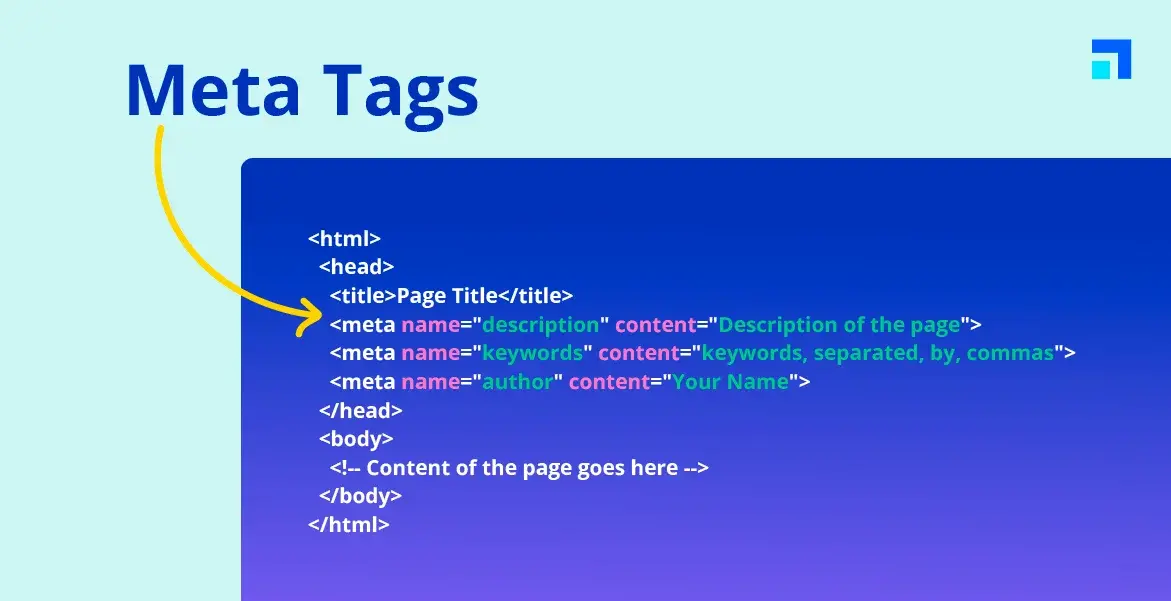Posted At: Sep 10, 2024 - 4,330 Views

In the competitive landscape of the digital world, Search Engine Optimization (SEO) plays a crucial role in determining the visibility and ranking of your website on search engine results pages. Among the various elements that contribute to effective SEO, meta tags are essential components that can significantly impact your website's performance. Understanding and utilizing SEO meta tags correctly can help improve your website's search engine ranking and drive organic traffic to your site.
Meta tags are snippets of HTML code that provide information about a webpage to search engines and website visitors. While there are several types of meta tags, the most important ones for SEO purposes are the meta title tag, meta description tag, and meta keywords tag.
- Meta Title Tag: The meta title tag is the title of a webpage that appears as the clickable headline in search engine results. It is crucial for both SEO and user experience, as it gives search engines and users a brief summary of the content of the page. A well-crafted meta title tag should be concise, descriptive, and contain relevant keywords to improve visibility and click-through rates.
- Meta Description Tag: The meta description tag is a brief summary of the webpage's content that appears below the meta title in search results. While meta descriptions do not directly impact search engine rankings, they play a vital role in encouraging users to click on your link. It is essential to write compelling meta descriptions that accurately describe the content of the page and entice users to visit your website.
- Meta Keywords Tag: The meta keywords tag was once a critical element for SEO but has lost significance over the years. Search engines like Google no longer consider the meta keywords tag as a ranking factor, as it was often abused by spammers. However, some search engines may still use it as a minor signal, so including relevant keywords can still be beneficial.
In addition to these key meta tags, other meta tags such as meta robots tag, meta viewport tag, and canonical tags also play important roles in optimizing your website for search engines.
To make the most of your SEO meta tags, follow these best practices:
- Conduct keyword research to identify relevant keywords for your meta tags.
- Keep meta titles under 60 characters and meta descriptions under 160 characters.
- Avoid keyword stuffing and ensure that your meta tags accurately reflect the content of the page.
- Regularly monitor and update your meta tags based on performance data and changes in search engine algorithms.
By understanding the importance of SEO meta tags and following best practices for their implementation, you can enhance your website's visibility, attract more organic traffic, and improve your search engine rankings.
